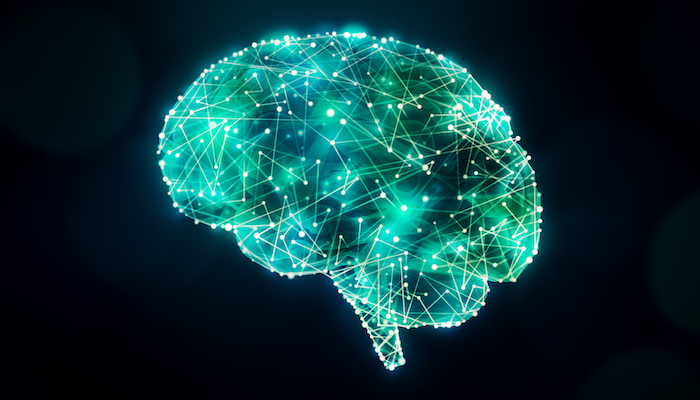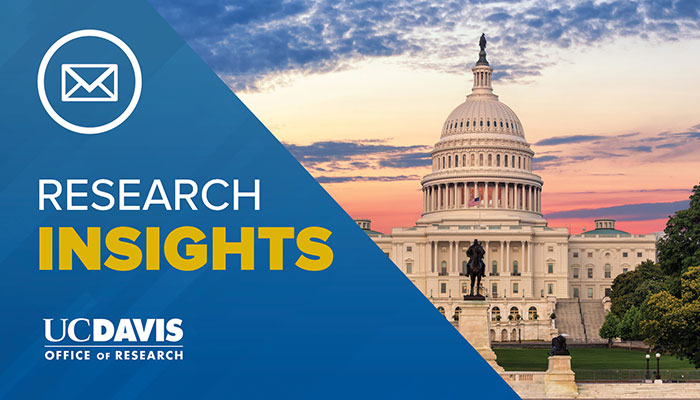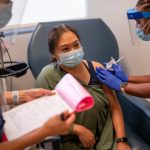UC Davis Launches Neuroscience Consortium
By Neelanjana Gautam
Today the University of California, Davis, officially launched a consortium called the UC Davis Neuroscience Consortium (UCDNC) to leverage the strength, breadth and depth of one of the largest neuroscience communities in the world. The consortium brings together nearly 300 researchers from eleven centers and 41 departments — integrating biologists, chemists, social scientists, engineers, computer scientists and clinicians.
“The consortium was developed out of a collective vision that together we could achieve transformational breakthroughs in neuroscience, ushering in more effective treatments, diagnostics and insights, said Kimberley McAllister, professor in the Department of Neurology in the School of Medicine and the Department of Neurobiology, Physiology, and Behavior in the College of Biological Sciences (CBS), director of the Center for Neuroscience, and a member of the UCDNC leadership council. “Our ultimate goal is to improve lives.”
To accomplish this goal, the consortium will provide a platform to help establish connections, launch new projects, train and mentor students, postdocs and residents, and serve as a conduit to develop external partnerships. The group’s website launched today, describing focus areas of research and programs relevant to neuroscience.
“UC Davis is clearly emerging as a global leader in neuroscience based on the collective advancements emanating from different groups across our campus,” said Paul Dodd, associate vice chancellor for Interdisciplinary Research and Strategic Initiatives at UC Davis. “Establishing the consortium is the logical next step to expand the benefits and impact of this talented network.”
Building on the Success of a Growing Neuroscience Network
About 30 years ago when many universities across the country were forming neurobiology departments, leaders at UC Davis envisioned something extraordinary. They recognized the fact that neuroscience is inherently interdisciplinary and decided to grow expertise in this exciting field through forming interdisciplinary centers that housed faculty from multiple colleges and schools.
The first of these centers at UC Davis was the Center for Neuroscience (CNS), one of the first of its kind in the country. The CNS brings together neuroscience experts and research teams from multiple departments and schools to study the brain and behavior, to advance treatments and cures for neurological and psychiatric disorders and to stimulate next generation transformative technologies.
“Since its inception, the UC Davis Center for Neuroscience has been an exemplar of interdisciplinary research, collaboration and innovation,” said Mark Winey, dean of the College of Biological Sciences. “The creation of the Neuroscience Consortium at UC Davis will further enhance the interplay of ideas and expertise across the entire campus to expand our cutting-edge neuroscience research and to have a positive impact on human health.”
Over time, complementary units with unique expertise in neuroscience were launched, including the world-renowned MIND Institute, focused on translational and clinical research in neurodevelopmental disabilities, and the Alzheimer’s Disease Research Center, focused on understanding aging and dementias and improving lives. The Center for Vision Sciences was formed to support the remarkably strong vision community. Then, the Center for Mind and Brain was established to investigate the nature of the human mind by linking the neurosciences with psychology, cognitive science and the broader social sciences, in order to explore the foundations of thought, knowledge and consciousness.
“UC Davis is uniquely poised to deliver incredible breakthroughs in the neurosciences because our faculty and researchers from every discipline and corner of the university have the opportunity to collaborate and holistically tackle the most challenging questions about the mind and brain,” said Estella Atekwana, dean of the College of Letters and Science.
Funding for mind and brain research within the UCDNC from the NIH alone exceeded $121 million in 2021, accounting for over 38% of all NIH research funding at UC Davis and truly emphasizing the impact of the consortium’s research endeavors.
Most recently, the newest neuroscience center, the Center for Neuroengineering and Medicine, was established to bring together the strengths in neuroengineering with those in basic and clinical neuroscience and streamline the translational timeline. Finally, in parallel with the development of these centers, neuroscience has grown through critical hires in additional departments across five colleges and schools. Clinical care of patients with nervous system disorders at UC Davis has also rapidly advanced in association with dramatic growth in clinical research and faculty expertise in the Schools of Medicine and Veterinary Medicine.
Griff Harsh, professor and chair of the Department of Neurological Surgery at UC Davis Health, and a member of the UCDNC leadership council said, “We now have a tremendous opportunity to advance our impact by establishing connections between these groups. Now that these centers are mature and successful on their own, we recognize that this is the perfect time to bring them together to form our new consortium.”
Importantly, the consortium is not another new center, but rather it’s a comprehensive structure that will allow everyone in the neuroscience community to work together in a collaborative way across all the individual groups. UCDNC leadership is based on a unique round-table council rather than having any individual leader, and its strength lies in the shared, collective vision for its future. The overarching goal is to promote as much synergy and interaction as possible.
Establishing Links and Incorporating New Perspectives
At UC Davis, basic research and clinical scientists from different disciplines are collaborating to tackle long-standing, complex problems in neuroscience. While computer scientists are working with engineers to develop wearable devices, non-invasive brain stimulation approaches and closed-loop systems, molecular biologists are identifying new targets and translational neuroscientists are developing new therapeutic strategies.
“As a neurologist and researcher, I am confident that the UC Davis Neuroscience Consortium’s world-class leaders in collaborative basic research and translational neuroscience will make unprecedented headway in our field,” said Allison Brashear, UC Davis School of Medicine dean. “This powerful collaboration will facilitate neuroscience research breakthroughs and new treatments that will benefit patients globally.”
The new consortium website illustrates many examples of focus areas that will benefit from creating new teams to tackle critical challenges facing humanity, from Poverty, Stress and Societal Impacts to Environmental Impacts and Neurotoxicology, to developing Prosthetics and Human-Machine Interfaces. The consortium will create even greater synergies within topics like Learning Memory And Plasticity that already have several major interdisciplinary sub-groups, such as the Alzheimer’s Disease Center, the UC Davis Conte Center, focusing on the developmental neurobiology of serious mental health disorders, and the cross-campus Memory and Plasticity Program (MAP). And it will bring these teams together with engineers and entrepreneurs to more effectively and rapidly improve the lives of those suffering from disabilities caused by devastating neurologic and psychiatric diseases.
The consortium will serve both internal and external stakeholders. Internally, it will help trainees and faculty find collaborators, resources, and innovative training programs. Externally, the consortium will act to showcase talent to attract future faculty and trainees as well as investments from private foundations, industry and donors.
Going forward, the consortium will build on this foundation to further advance the neuroscience community by promoting collaborations, developing even more cross-campus training programs and expanding the community’s already impressive outreach events to promote diversity, recruit students and researchers, attract more federal funds and elevate national standing.
To learn more about the consortium and opportunities to collaborate, visit their website.
Media Contact
AJ Cheline, UC Davis Office of Research, 530-752-1101, [email protected]
Latest News & Events







